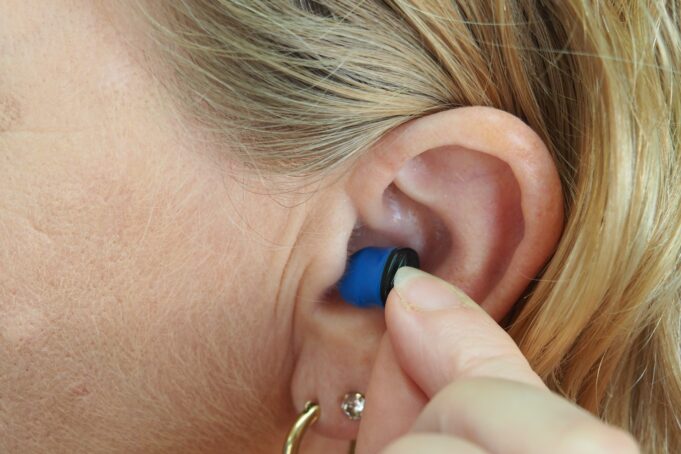Our ability to hear sounds is something that many of us simply take for granted on a day-to-day basis. But if your hearing has become damaged, then it becomes difficult, if not impossible to reverse the issue.
Hearing loss means that some, or in some cases all of your hearing ability is permanently gone. While that might not be what you wanted to hear, the good news is that hearing loss can be preventable, so even if you have lost some of your hearing, you don’t have to lose any more. Aside from genetic hearing loss or hearing loss that is the result of an underlying health condition, most people who lose some or all of their hearing have damage to the inner ears from high-pitched or loud noises.
Whether you have noticed that you have some signs of early hearing loss and want to prevent the problem from worsening over time or are just interested in protecting your hears as much as possible to prevent hearing loss in the future, keep reading to find out more about what you can do.
Get Your Ears Tested
First of all, it’s a good idea to have a hearing test to get more information on the extent of any damage that your ears have already suffered. You can book a hearing test at www.phonak.com/en-uk/find-a-provider. Once you have had a hearing test, it will be easier to see the cause behind any symptoms that you might be experiencing such as struggling to converse in public or struggling to hear certain noises. A hearing specialist can also help you with determining if any hearing loss you have experienced so far is indeed the result of damage to the inner ear, or if you are dealing with another problem, such as genetic hearing loss.
Protect Your Ears
Exposure to loud noises is one of the most common causes of hearing loss, so it’s important to ensure that your ears are protected. Working in a noisy environment, spending a lot of time in clubs and concerts where there is loud music, or playing music through headphones or earbuds a lot can damage the inner ears and lead to hearing loss. The best way to protect your ears is to avoid situations where you will be exposed to loud noises. Wearing earbuds or ear defenders if you are in an unavoidable situation can also help.
Turn the Volume Down
Headphone and earbud use is contributing to hearing loss around the world. While there’s something fun about blasting loud music through your headphones, having the volume too high can cause damage to the inner ear. While more and more headphone brands are now putting safety measures in place to help users avoid listening to music that is too loud, it’s important to continue being vigilant about the volume that you listen to music at. The 60/60 rule is a good one to follow when you are using headphones to listen to music. Never let the volume get any higher than 60%, and only listen for sixty minutes at a time. Over-ear headphones are a better choice than earbuds, since the way earbuds are designed to sit next to the eardrum makes them particularly risky for hearing loss.
Allow Your Ears Time to Recover
If you have been exposed to loud noises for a prolonged period of time, such as attending a live music concert or going out to a club, then it’s a good idea to plan some recovery time for your ears. While it’s important to try and avoid situations with loud noises as much as possible, there are always going to be times when you may not be able to, or might not want to – after all, if your favourite musician is coming to town, you are going to want to enjoy seeing them perform as much as possible. Giving your ears some time to recover and taking breaks from the loud noises wherever you can is a good idea. If you can, step outside from time to time when you are at the event to give your ears a break. Afterwards, your ears will need some prolonged quiet time to be in with the best chance of recovering. Experts suggest giving your ears sixteen hours of quiet recovery time after a noisy event.
Clean Your Ears Carefully
Ears are self-cleaning, so the good news is that there is not a lot that you have to do to keep them clean and healthy. You should only clean around the outer ear if you see excess ear wax that needs wiping away. Cotton swabs should not be used to clear inside your ear and get ear wax out of it. It’s very normal to have a little bit of ear wax inside your ears; it plays an important role in keeping your ears clean and preventing harmful particles from getting inside the ear canal.
Along with avoiding using cotton swabs, keeping your ears dry is also important. Too much moisture in the ears can lead to bacteria getting inside. When bacteria get inside the ear, it can lead to a range of ear infections that can ultimately cause damage to your inner ear and your hearing ability. Infections are not just risky for your hearing but can also be very painful and uncomfortable to deal with. Make sure to gently dry your ears with a towel after showering, bathing, or going swimming. If you can feel water stuck inside the ear, then gently tilting your head to one side and tugging lightly on your ear lobe can help to get it out.
Whether you have already suffered some hearing loss or simply want to do your best to prevent it in the future, the good news is that most hearing loss is easily preventable by caring for your ears and avoiding exposure to loud noises as much as possible. It’s also a good idea to go for a regular hearing test, so that you always have the latest information on your ear health.
Image via Unsplash














